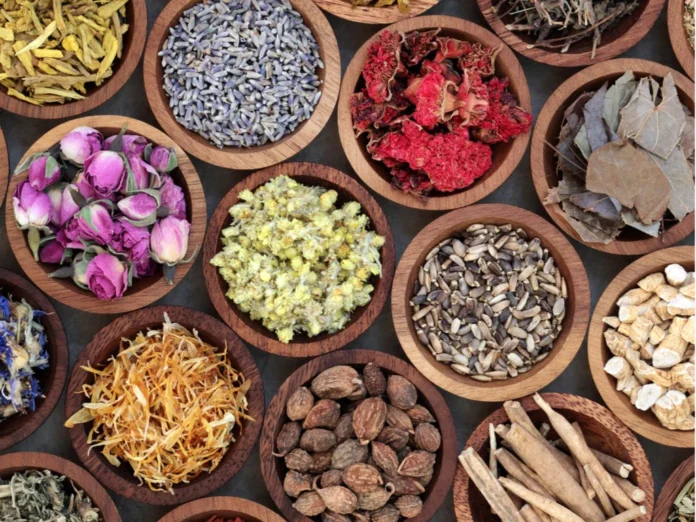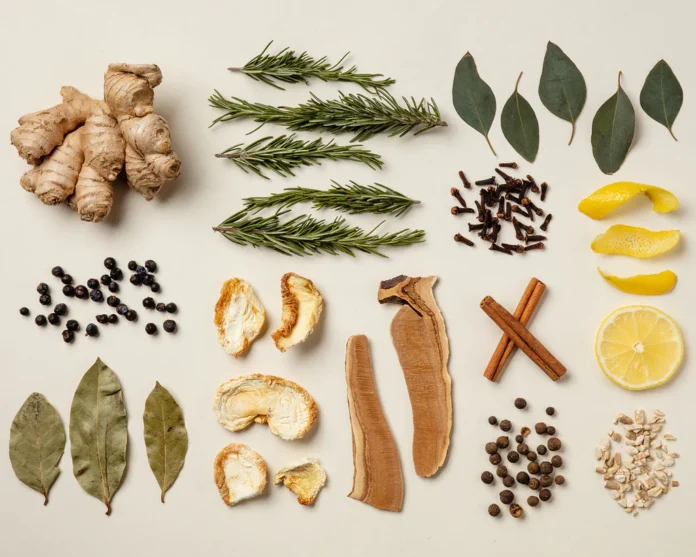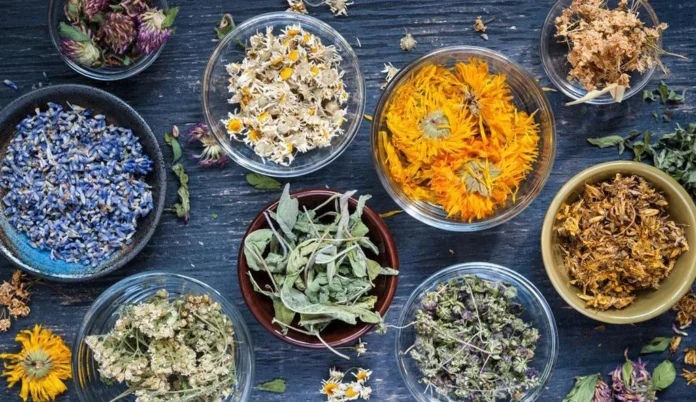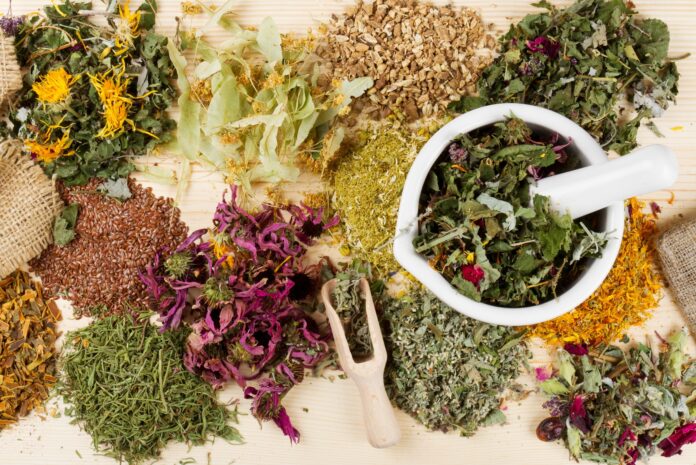
In today’s fast-paced and demanding world, it’s no surprise that anxiety and stress have become common concerns for many individuals. While there are various approaches to managing these conditions, one natural and holistic option that has gained popularity is the use of herbs. Plants, such as adaptogens and nootropics, offer potential benefits in alleviating anxiety and stress, promoting relaxation, and improving overall well-being.
Understanding Adaptogens and Nootropics

Adaptogens and nootropics are two categories of herbs that are particularly known for their stress-reducing properties. Adaptogens are a unique group of plants known as natural supplements for anxiety and stress that help the body adapt to physical, mental, and emotional stress. They work by regulating the body’s stress response and promoting balance.
Nootropics, on the other hand, are plants that enhance cognitive function, including memory, focus, and mental clarity. While they may not directly target anxiety and stress, their positive effects on brain health can indirectly contribute to stress reduction.
The Science Behind Natural Remedies for Anxiety and Stress
Scientific research has shed light on the mechanisms behind the effectiveness of herbal remedies in managing anxiety and stress. Adaptogens, such as ashwagandha, have been shown to modulate the release of stress hormones, such as cortisol, and promote a sense of calmness. Nootropics like bacopa monnieri have demonstrated their ability to reduce anxiety and improve mood by influencing neurotransmitters in the brain. Understanding the scientific basis behind these herbs can help us make informed decisions when choosing the right remedies for our needs.
Choosing the Right Herbs: Factors to Consider

When selecting herbs for anxiety and stress, it’s crucial to consider factors such as individual health conditions, potential interactions with medications, and personal preferences. Consulting with a healthcare professional or herbalist can provide personalized guidance. Additionally, considering the specific symptoms or underlying causes of anxiety and stress can help tailor the herbal regimen to address individual needs effectively.
Common Adaptogenic Plants for Anxiety and Stress
- Ashwagandha: Ashwagandha is an ancient herb widely used in Ayurvedic medicine for its stress-reducing properties. It helps regulate cortisol levels and supports the body’s natural resilience to stress.
- Rhodiola Rosea: Rhodiola Rosea is known for its adaptogenic and mood-enhancing effects. It can boost energy levels, reduce fatigue, and improve mental performance, making it an excellent plant for stress management.
- Ginseng: Ginseng is a popular adaptogenic herb that promotes relaxation, improves mental clarity, and enhances overall well-being. It can also support the immune system, which can be weakened during times of stress.
- Holy Basil (Tulsi): Holy Basil, or Tulsi, has been revered for its medicinal properties in traditional Indian medicine. It helps reduce anxiety and promotes a sense of calmness. It is also known for its antioxidant and anti-inflammatory effects.
- Eleuthero (Siberian Ginseng): Eleuthero is an adaptogenic plant that supports the body’s ability to cope with stress. It enhances mental performance, increases stamina, and improves overall vitality.
Exploring Nootropics for Anxiety and Stress Relief

- Bacopa Monnieri: Bacopa monnieri is a powerful plant that enhances cognitive function and reduces anxiety. It promotes relaxation, improves memory, and supports overall brain health.
- Lion’s Mane Mushroom: Lion’s Mane Mushroom is a nootropic known for its neuroprotective and mood-enhancing properties. It stimulates nerve growth and may improve cognitive function, reducing tension
- Ginkgo Biloba: Ginkgo Biloba has been used for centuries to support brain health and improve cognitive function. It increases blood flow to the brain, enhances memory, and reduces symptoms of anxiety.
- L-Theanine: L-Theanine is an amino acid found in tea leaves that promotes relaxation and reduces anxiety. It can increase alpha brain waves, inducing a state of calmness without drowsiness.
Other Supplements for Anxiety and Stress

- Chamomile: Chamomile is a gentle herb known for its calming properties. It can alleviate anxiety, promote sleep, and soothe the nervous system.
- Lavender: Lavender is a versatile plant that possesses sedative and anxiolytic properties. Its aroma can help induce relaxation and reduce anxiety.
- Lemon Balm: Lemon balm has a refreshing citrus scent. It calms the nervous system, reduces anxiety, and promotes restful sleep.
- Passionflower: Passionflower is a calming herb that can help alleviate anxiety and insomnia. It increases the levels of gamma-aminobutyric acid (GABA) in the brain, inducing relaxation.
- Valerian Root: Valerian root is a popular herb for promoting sleep and reducing anxiety. It can help relax the muscles, ease tension, and improve sleep quality.
Incorporating Herbs into Your Routine: Forms and Dosage

Herbs for anxiety and tension are available in various forms, including capsules, tinctures, teas, and powders. The optimal dosage can vary depending on the herb and the individual. It is advisable to follow the recommended dosage instructions on the product packaging or consult with a healthcare professional for personalized guidance.
While herbs are generally considered safe, it’s important to be aware of potential side effects and interactions with medications. Pregnant or breastfeeding individuals, as well as those with pre-existing medical conditions, should exercise caution and consult with a healthcare professional before incorporating herbal remedies into their routine.
Lifestyle Tips for Managing Anxiety and Stress
In addition to herbal remedies, certain lifestyle changes can significantly contribute to managing anxiety and stress. These include regular exercise, practicing mindfulness and meditation, maintaining a healthy diet, getting adequate sleep, and engaging in activities that bring joy and relaxation.
Combining Herbal Remedies with Other Strategies
Herbal remedies can be a valuable part of a holistic approach to managing anxiety and stress. They can be combined with other strategies such as therapy, stress management techniques, and social support to enhance overall well-being and improve resilience.
Seeking Professional Advice: When to Consult a Healthcare Provider

While herbal remedies can offer significant benefits, it is essential to seek professional advice, especially if you have underlying health conditions, are taking medications, or experience severe anxiety or pressure. Healthcare providers can provide personalized guidance and ensure that herbal remedies are compatible with your individual circumstances.
Conclusion
Herbs for anxiety and stress, including adaptogens and nootropics, offer natural and holistic solutions for managing these common conditions. Through their ability to modulate stress responses, enhance cognitive function, and promote relaxation, herbs can play a valuable role in supporting overall well-being. By understanding the science behind herbal remedies, considering individual needs and preferences, and incorporating lifestyle changes, individuals can empower themselves with effective strategies to alleviate anxiety and stress, leading to a healthier and more balanced life.








